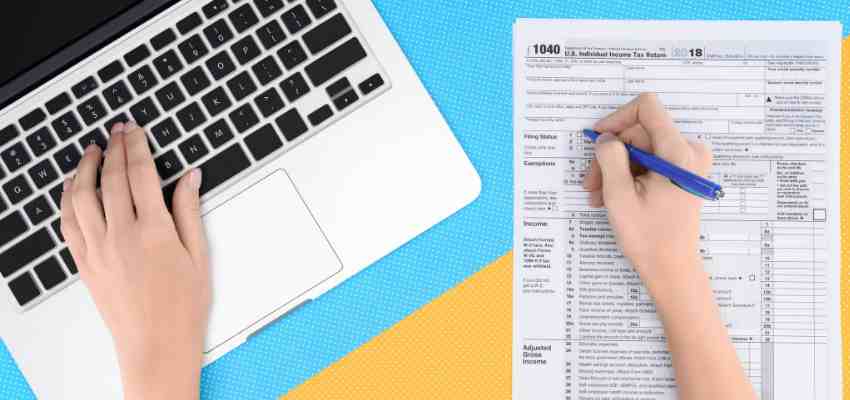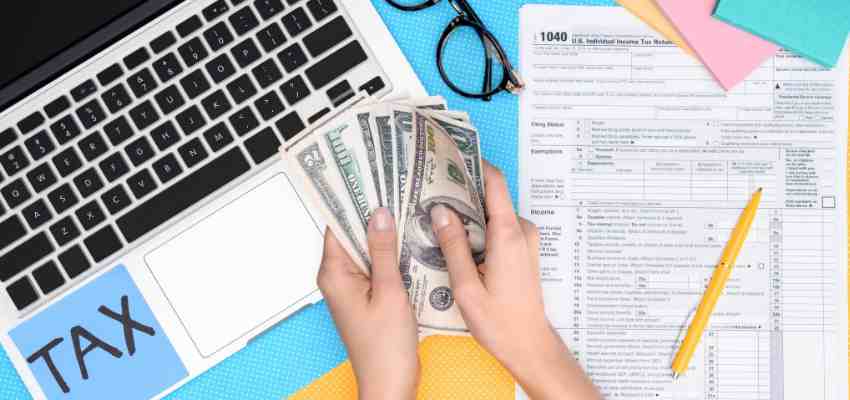Show:
How To Track Better Paid Taxes: 6 Useful Tips
When you are spending your hard-earned money, it is important to understand how much of that goes towards taxes. Tracking the amount of tax you have paid can be difficult, but with these six helpful tips, it will become a lot easier! Track your expenses and income to figure out what percentage should go towards taxes. Being aware of how much you owe in taxes at any time is important because not paying them on time could result in fines or other penalties!

1. Check Your W-2 Forms
If your income is from a job, chances are you will receive this form. Which you can also check when getting your paystubs. Your employer should provide it to you by the end of January, it shows how much they have deducted in taxes from each paycheck throughout the year. If your W-2 form says that more money was withheld than necessary for federal tax purposes, then file a new W-2 form with your employer. You have the option of using an online paystubs maker as it will be needed when you need to make large payments such as purchasing a house or a condo. Additionally, if you’re on a payroll system, you’ll most likely need to show a few recent pay stubs and W2 forms. If on the other hand, you are self-employed your tax returns could work or you can try out our paystub maker. Understanding what is being withheld from your paycheck will help reduce how much money goes to taxes at the end of the year! A W-2 form can be used for both state, and federal income taxes, but if you are unsure check with an accountant or financial adviser to be sure!
2. Make Sure You Are Withholding Enough Taxes From Each Paycheck
Understanding the tax rates is important for any business owner or individual hiring an employee. Doing so can help improve your cash flow, reduce expenses and prevent financial headaches in the future. Make sure that your withholding is enough, but not too much as this may mean you will need to make a large payment once it comes time for filing taxes. Remembering all of the deductions you are eligible for can be tough, but important. Track what you owe to avoid penalties and fines later on down the line! Keep an eye on your paid taxes to ensure that you are paying the right amount of tax at each pay period.
3. Review What’s In Your 401(K) And IRA Accounts
If you roll over all or part of an old 401(k) to a new employer’s plan, make sure the records are accurate so that it is reported correctly on future tax returns. Having information on your old 401(k) and IRA accounts will ensure that you do not pay double taxes on the same amount of money. If something seems off, contact your retirement account administrator for help tracking down any mistakes or missing information. Pay attention to how much tax is withheld from each paycheck, if there’s too little withheld, you could owe more at filing time. Too much withheld could reduce your refund, or result in a smaller tax bill. Track how much you owe on quarterly estimated taxes if you expect to be hit with an underpayment penalty at filing time.
Track any additional withholding strategies, like increasing the percentage of wages that are taxed, or ask your employer to withhold more federal income tax from each paycheck (though note that your wages can’t be garnished to pay back taxes unless you owe more than $217,000). Apart from stocks, track other investments, and accounts you own, subject to capital gains tax; like mutual funds, bonds, and commodities generate taxable income too. Track your rental property’s depreciation, and capital losses to offset capital gains every year to avoid paying more taxes than necessary. Don’t forget your business income, or losses for sole proprietorships, partnerships, and S-corporations.
4. Look At How Much You Owe Or Will Receive Back For Any Credits Or Deductions
To make sure that you can track your taxes better, some basic knowledge about deductions will come in handy as well. Track those too! Track every bit of income earned, any credits or deductions received, as well as all monthly outlays such as rent/mortgage payments for a couple of months.
Add this up at the end to give you your total income minus your total expenses for each month, and then compare them with what has been deducted from or added to your account. Track these numbers every month so that you don’t have any nasty surprises come tax time! Track how much was withheld in taxes throughout the year (number of paychecks, how much was withheld each paycheck). Track your monthly bank account statements for all income and expenses (including those pesky “miscellaneous” ones!) to see if you are missing anything or making mistakes with your calculations.

5. Consider Filing An Extension
If you can’t get your return done by April 15, it’s usually possible to file Form 4868 and get an automatic extension of six months. As long as you pay any tax due with the extension request, this is a straightforward way to buy more time without facing late-penalty charges for underpayment.
Just be aware that once the six-month extension period ends, you face a deadline for filing your return that falls within the normal tax year. If you don’t meet this extended due date (generally October 15), late penalties will apply retroactively to April 15 if your total taxes owed exceed $1000.
6. Use A Tax Software Program
If you are someone who is not very good at filing taxes, it may be best to use tax software programs. These programs will automatically file your return for you and keep track of the credits that you qualify for. This way there’s no need to worry about making mistakes or missing any benefits that could help lessen how much money you owe in taxes.
There are many different programs that you can use, but there’s no need to break the bank to find one. Instead of purchasing a program outright, it may be best for you to look into free or low-cost tax software online. There are several types out there so read up on your options and see which ones will work best for you and your specific situation.
One of the most important things to remember: Track, Track, Track! When tax season rolls around this year make sure that you keep track of all sources of income as well as how much money was spent on certain items throughout the year so that it’s easier for you come filing time. That way there’s no need to worry about certain things not being deductible because you have all of your receipts and paperwork ready. If this is a task that seems difficult for you, consider hiring a professional accountant or tax advisor who can help guide you along the way. The last thing anyone wants when it comes time to file taxes is unnecessary stress!

 Return to Previous Page
Return to Previous Page








